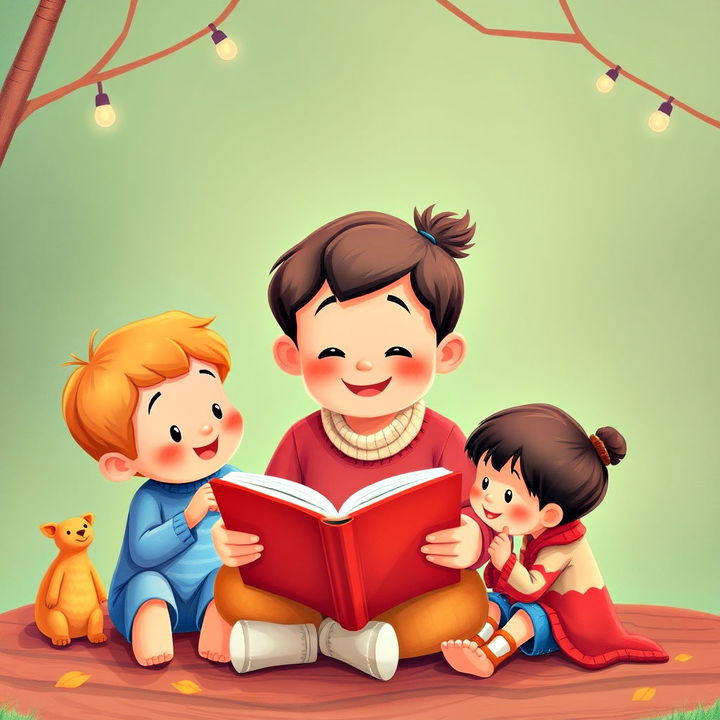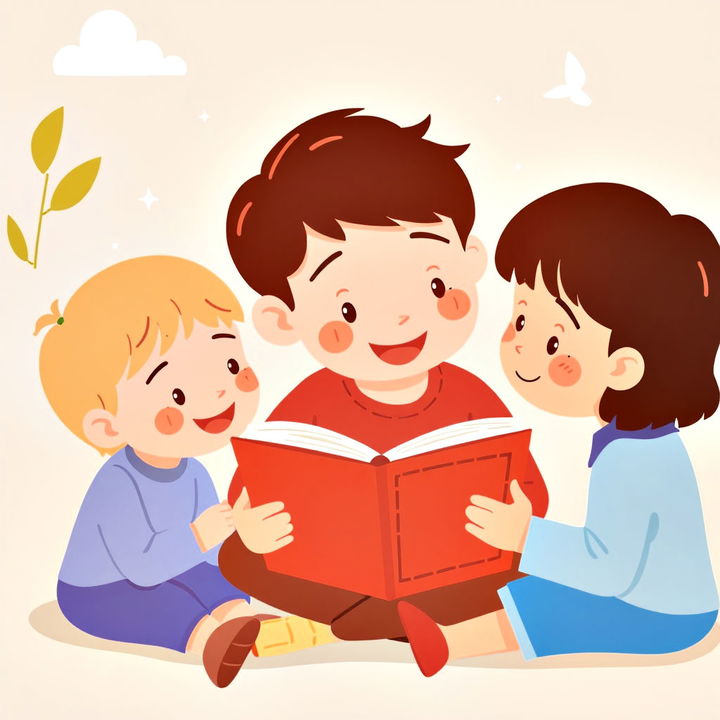You may have heard that kids love stories and that telling stories is a useful and effective way to learn. Most people do not understand, however, that storytelling has many benefits outside academia, including teaching moral values. It also offers a perfect chance for a parent to bond with a child while also supporting cognitive and language development. Here are some reasons why storytelling is important for children.

It Teaches Moral Values
Other than being an enjoyable activity, storytelling benefits various areas of your child’s cognitive growth and development. One of the main benefits of storytelling is that it can teach children important lessons about right and wrong, good and evil, and other virtues. For example, when reading a bedtime story to your child, you can use the characters and plot to discuss the importance of basic morals (such as honesty, kindness, and generosity). Stories can also help children develop empathy for others and learn how to resolve conflicts effectively. If you are a student struggling with academic assignments, visit masterpapers.com to hire a paper writer.
It Teaches New Ideas
Stories bring new ideas. When children listen to stories, they learn about different types of people, places, and events. Storytelling can also open up a whole new world of possibilities and show children that anything is possible when they dream big. For example, reading stories about magical creatures like elves and fairies can expand a child’s imagination. When you read stories about historical events or different cultures, you are teaching your child about the world.
Storytelling Promotes Creative Thinking
Imagination is among the most significant advantages, and it stresses the necessity of tale-telling when children are concerned. Another exemplary method of enhancing creative thinking among kids is through storytelling. Permitting the children to come up with endings, once in a while, will assist them in building their imagination and narration skills. Furthermore, storytelling enhances children’s thinking since it enables them to think creatively. Stories are narratives used to help express different viewpoints and strategies or even compel a child to think and be creative on how to approach a problem. For example, you can ask your child a question like, “Imagine you are one of the characters in the story; what are you going to do?”
Storytelling Promotes Language Development
Stories are a rich and varied source of language learning opportunities. They can help children learn new words, improve grammar, and develop reading skills. Stories not only teach children new vocabulary but also give children the opportunity to use that vocabulary in different contexts. Storytelling can also help children learn how to express their feelings healthily. By listening to stories about characters who are scared, sad, or happy, children can learn to identify and manage their emotions.
Storytelling Can Improve Emotional Intelligence
Stories can help children identify and regulate their emotions and learn to deal with difficult situations. When children hear stories about characters facing difficult situations, they can learn how to cope with their problems. In addition, storytelling can help children understand other people’s feelings. By listening to stories about kind, helpful, and tolerant characters, children can learn to empathize with others.

Storytelling Helps Foster a Love of Reading
The art of storytelling plays a role in cultivating a passion for reading. Introducing children to diverse narratives at an age increases the chances of them embracing reading as a pursuit. Apart from enhancing children’s comprehension of the world, storytelling also offers a memorable experience. Engaging in shared reading sessions with your child creates lasting bonds and fosters a love for literature that endures over time.
Storytelling Is a Fun Way to Learn
Also, sharing stories is a method for children to gain knowledge. By sparking their creativity and broadening their perspectives, tales can enable kids to explore aspects of the world. Narration brings an array of advantages for children. The significance of storytelling for children is evident in its ability to educate them about the world and everyday experiences. Listening to stories can arm children with abilities that will serve them in situations. Above all, it offers them enjoyment and amusement while they acquire knowledge. That said, even the most talented student may need help with assignments from time to time. A platform like masterpapers review allows you to choose gifted writers for your projects as you focus on other areas of your studies.
Storytelling Is a Great Way for Kids to Escape and Entertain Themselves
For kids, it is one of the best ways to teach them how they can spend their time and be entertained without necessarily tuning into television or video games. We see children develop either boredom or crankiness whenever they are placed at a station that they consider as limited to their desire. This is why it is always recommended that the child read as many books as possible and gain knowledge of all types of literature. Accompanying every lesson, children can acquire adequate knowledge about the world by knowing the interesting characters of the books that they are reading.
Even the availability of the books influenced the outcome. In a recent study, it was noted that having the books within ‘viewership’ greatly reduced boredom among kindergarteners by about 30%. So, while you can let your little one play video games or use some other electronic device to play with, you should let him or her read a book.
Storytelling Helps Build Cultural Awareness
Kids can establish cultural knowledge in a societal context through learning stories. It may also be noted here that, as was pointed out earlier, telling stories was how, in the past, people were able to share their culture and heritage. This is not surprising, and it is no different today – although the manner in which we may do so might be dissimilar. It also enables the children to embrace other cultures as they continue with their normal learning.
Storytelling is innate in every person, and most often, it is repeated during childhood. It is one of the first forms of education that has evolved even from the time when humans were learning from parents and elders. At Young Academics, it is not a subject that you learn for several weeks and then discard, but work to ensure that it is incorporated into your child’s life. The use of storytelling is important not only when it comes to capturing the attention of children at an early age of education but also when it comes to numerous developmental advantages. Storytelling can also happen through nursery rhymes, fables, songs, cultural stories, and plays.




